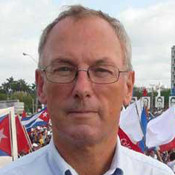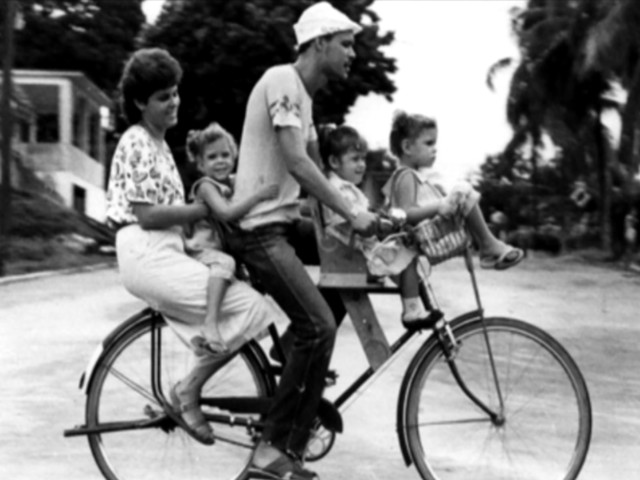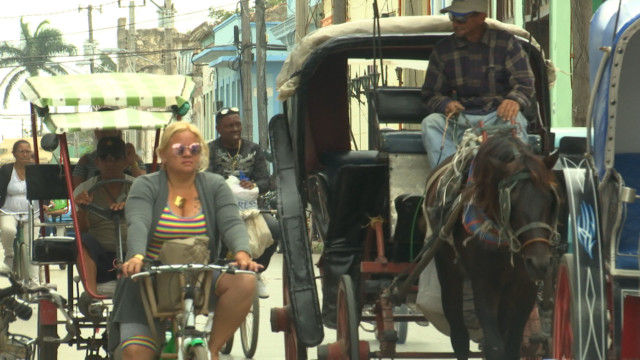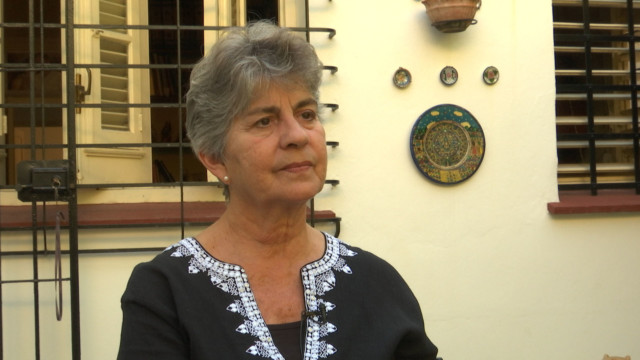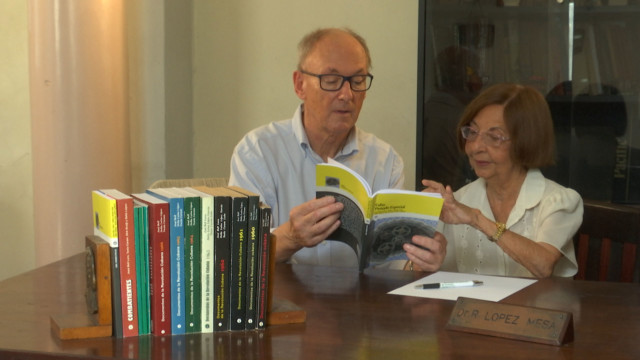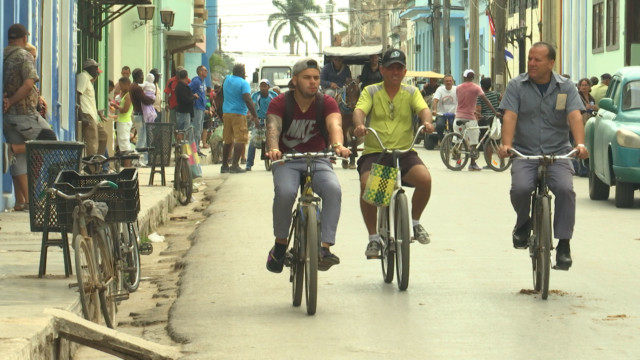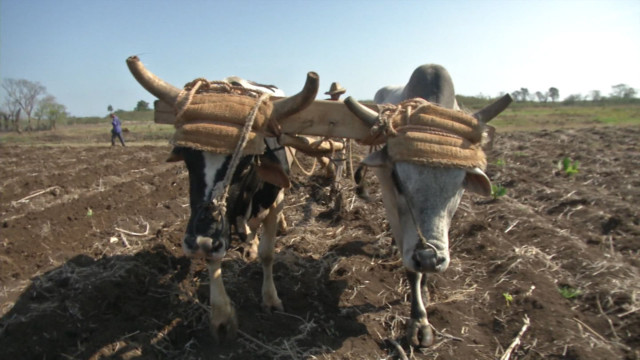Stories in this series
How would the world survive if suddenly oil and gas supplies ran out? It’s a problem Cubans know all too well… having suffered such a fate following the collapse of the Soviet Union in 1991.
The Cuban economy went into free fall, and there was widespread hunger. Despite a tightening of the trade embargo by the United States, Cuba pulled through.
In the second of his three-part series featuring key moments in history which have helped shape Cuba today, CGTN’s Michael Voss looks at how Cubans adapted to the hardships faced in what became known as the Special Period.
Cardenas is an industrial town on the north coast of Cuba, not far from the island’s famous resort beaches of Varadero.
Visit the town during rush hour and it is surprising how few cars and buses can be seen on the streets. Instead, most people here travel on bicycles or horse drawn carriages.
It’s a town which prides itself on its use of alternative forms of transport. At one entrance, there is a statue of a giant bicycle.
But for many Cubans, bicycles are a grim reminder of the tough times everyone faced following the collapse of the Soviet Union.
Martha Nuñez is a retired a sociologist who remembers well living through the period.
“I rode a bicycle for a year and half. I will never ride a bicycle anymore,” she told me.
Like almost everyone who lived through the early 1990’s, these were the hardest days of her life.
“All of a sudden, all of us had nothing, nothing. No energy, no electricity, no water, no soap, no nothing.” Nuñez remembers.
Cuba and the Soviet Union
Shortly after the Revolution, Fidel Castro turned to the Soviet Union following the trade embargo imposed by the United States.
The Soviets ended up buying all the sugar Cuba could produce at inflated prices and selling it for low-cost oil at subsidized rates. Cuba had become dependent on the Soviet Union for around 80 percent of its international trade.
Then suddenly, as communism collapsed across Eastern Europe and the Soviet Union, Cuba’s foreign trade all dried up.
According to University of Havana economist Juan Triana, gross domestic product fell by almost 34 percent while the fiscal deficit went up to 35 percent.
Fidel Castro announced his country had entered a ‘Special Period in a Time of Peace’, comparing the ensuing depravations to a wartime siege.
Delia Lopez is co-author of a recently published book on the Special Period.
“The impact was brutal. Since having no oil, we could not operate our factories, do agriculture, while the homes had no power,” said Lopez.
Cuba ended up importing more than a million bicycles from China because it had run out of fuel for cars.
In the countryside, tractors were replaced by oxen which can still be seen ploughing the fields all over the island.
Without fertilizers or fuel for irrigation, there were severe food shortages. Many went hungry and lost weight.
But for Delia Lopez, it was the blackouts which hurt the most.
“The blackouts were like a sword striking at the heart of Cubans during the Special Period. Because in the heat of the summer months here, it’s almost impossible to live without an electric fan,” she said.
Every weekend as dusk falls, hundreds of young Cubans gather at the seawall along Havana’s famous boulevard, el Malecon. It’s a favorite meeting spot. Many stay until the early hours of the morning taking in the cool sea breeze.
During the Special Period, the seven kilometer seawall was packed each night with entire families, including grandparents and children. It was the only way to escape the stifling heat of their apartments without electricity. Others would go and sleep on the flat roofs of their buildings.
For Delia Lopez, those nights outdoors fostered a sense of solidarity.
“Going out onto the streets at night, we all became closer. We organized games for the children, chatted and told jokes, played dominoes and so forth. It was a social response to the blackouts,” she said.
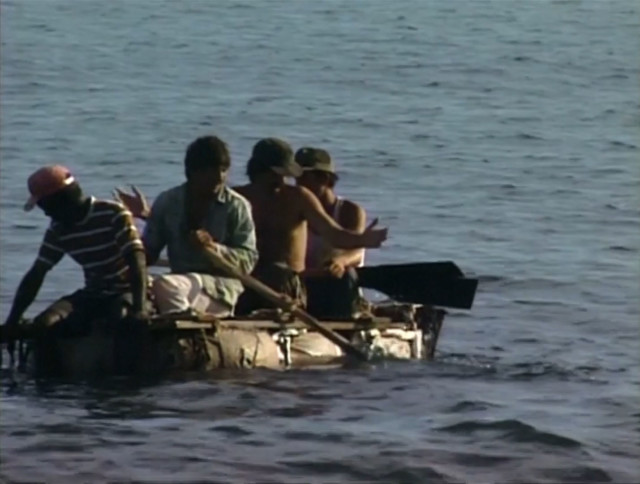
During the hardships of the Special Period, thousands of Cubans fled to the U.S. on makeshift boats.
The hardships also saw thousands flee the island on makeshift boats in a bid to find a better life in the United States.
The U.S. reacted by tightening the trade embargo, hoping to push Cuba to the brink of collapse and bring about regime change.
But the system survived.
Economist Juan Triana believes that unity in the form of a constant dialogue between Fidel Castro and the people was one of the keys to survival.
“Many blamed the U.S. for the collapse of the Soviet Union and felt that our sovereignty, independence and values were under attack. Socialist or not these were our own values we had fought hard for,” Triana said.
Another factor, according to Triana, was Fidel Castro’s willingness to accept radical changes such as foreign investment in order to survive.
Cuba opened its doors for tourism for the first time since the revolution with European companies investing in hotel chains. Castro also allowed small scale private enterprises for the first time in the tourist sector, including family-run restaurants and bed and breakfast lodgings.
Many though were forced to close once the economy finally started to improve.
It did though set the stage for the more widespread economic openings after his brother Raul Castro came to power.
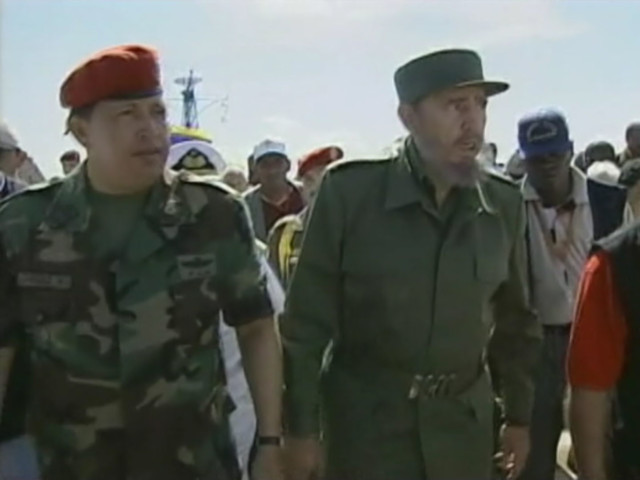
Venezuela leader Hugo Chavez brought his country’s oil and petrodollars to aid Fidel Castro’s Cuba during the Special Period.
Eventually, a new benefactor stepped in, Venezuela’s Hugo Chavez, who used his oil and petrodollars to come to Cuba’s aid.
The man widely expected to take over from Raul Castro as the next president of Cuba on April 19, is 57-year-old Miguel Diaz-Canel.
In the early 1990’s, at the height of the Special Period, Diaz-Canel was the provincial communist party leader in Villa Clara – the equivalent of a state governor in the United States.
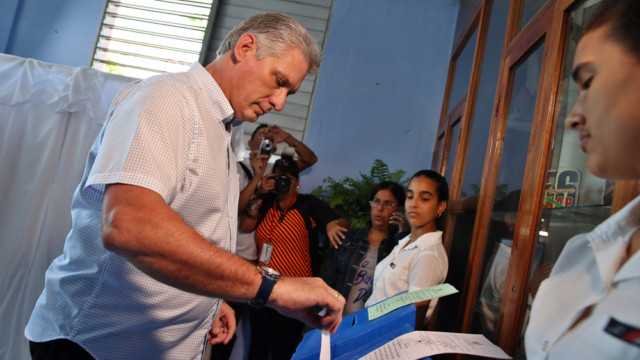
Cuba’s First Vice-President Miguel Diaz-Canel, casts his vote in Santa Clara, Cuba, during an election to ratify a new National Assembly, on March 11, 2018. (AFP PHOTO / POOL / Alejandro Ernesto)
Diaz-Canel built a reputation as a ‘man-of-the-people’ because instead of using his official Soviet made Lada car for state business he did what the rest of the population had to do and went everywhere by bicycle.
He may need those skills once again.
These days, Venezuela is in crisis and can no longer afford such generous assistance while the U.S., under President Donald Trump, is once again trying to pressure Cuba to change.
Cuba was never as dependent on Venezuela as it was on the Soviet Union, and today, it has commercial ties with a whole range of countries including China and the European Union.
But the economy is struggling and for many, times remain tough.
Diaz-Canel does not have the same authority and legitimacy as the Castro brothers. He will be the first Cuban leader who is not part of the ‘historic generation’ who fought in the Cuban Revolution.
The experience of the Special Period points to the resilience of the Cuban people but for how much longer? Diaz-Canel’s presidency could well be defined by his ability to turn the Cuban economy around.
 CGTN America
CGTN America